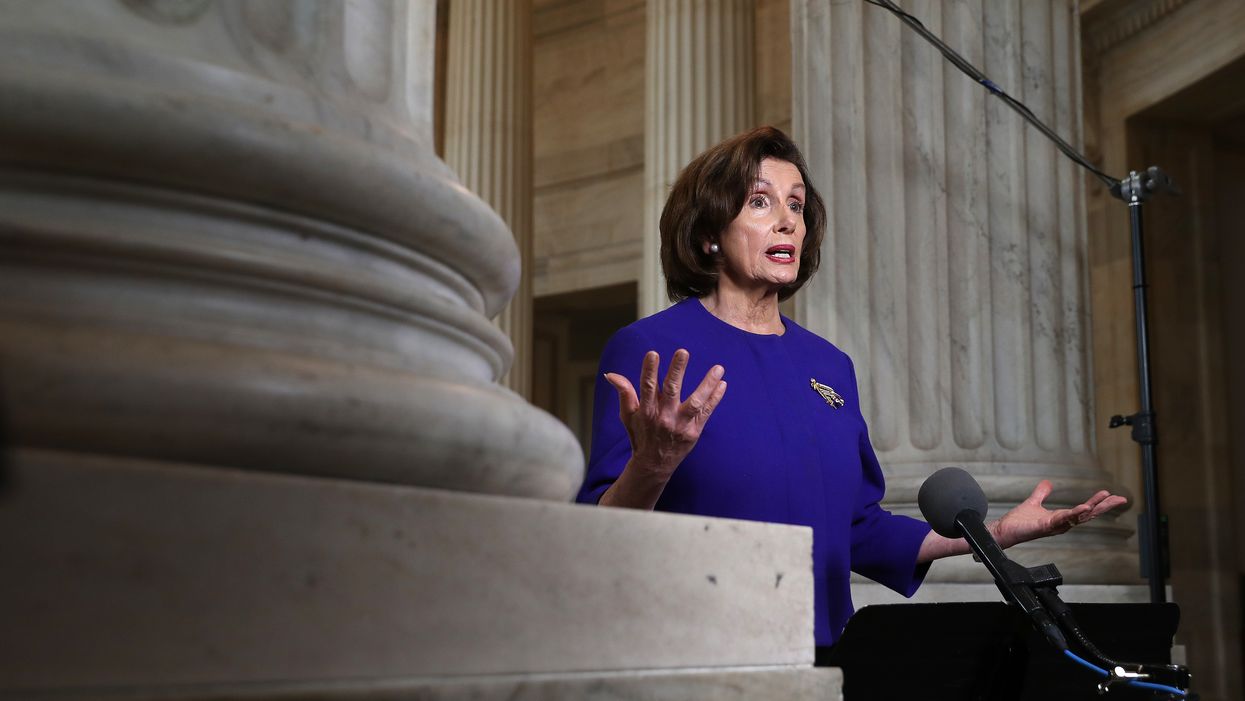Top congressional Democrats are promising to include much more money for healthy elections in the next coronavirus response package they're pushing. But Republicans' resistance to quickly writing such a bill is intensifying, obscuring their level of interest in additional spending to expand voting by mail, early voting and online registration.
Speaker Nancy Pelosi said Wednesday the measure her House majority has started putting together would provide at least $1.6 billion on top of the $400 million included in the economic rescue package passed last week.
Dozens of groups advocating for voting rights and the broader democracy reform agenda have coalesced behind that funding level as their singular focus during the pandemic, arguing that conducting a normal and trustworthy election in November will be impossible otherwise.
But Republicans in control of the Senate say they're in no rush to draft another stimulus bill, and state officials say significant delay could make it impossible to spend additional aid in time.
The $2 trillion measure signed last Friday needs time to prove itself, Republicans say, and besides they're highly skeptical about Democrats' agenda, arguing the left wants to use the cover of the Covid-19 outbreak to advance a liberal agenda on all kinds of minimally connected fronts.
Complicating the prospects for additional election grants is resistance from President Trump, who lamented this week that making it too easy to vote would cripple the chances of Republican candidates.
On Thursday, two dozen progressive groups joined the two Democratic senators leading the drive for the money, Amy Klobuchar of Minnesota and Ron Wyden of Oregon, to promise an intense lobbying push in the weeks ahead.
They expressed optimism GOP congressional leaders would support another wave of spending whenever they agree to move the next bill, in part because the top election officials in 28 states are Republicans and they're eager for the cash.
"I'm beginning to see a disconnect between conservatives at the state and local level and Republicans who have resisted this in Washington," Wyden said.
What those GOP officials don't want are accompanying federal requirements for liberalizing their voter registration or absentee ballot rules, even though many are preparing to do so. No such strings were attached to the first grants because new federal mandates on how the states and counties conduct elections are non-starters for Republican leaders, starting with Senate Majority Leader Mitch McConnell.
"Offsetting the carbon footprint of airplanes, remaking our energy grid, or changing election laws, as Democrats have suggested, have nothing to do with our war against the disease," House Majority Leader Kevin McCarthy said in a statement.
The Brennan Center for Justice, one of the most prominent left-leaning democracy reform groups, came up with $2 billion as the high-end estimate of what it would cost to print return-postage-paid ballots, send them to all Americans who don't already vote at home, verify and count the ocean of paper that gets returned, stand up online registration in the 11 states that don't have it and assure hygienic polling stations for the small numbers who still vote in person early or on Nov. 3.
The estimate did not include additional costs that more than a dozen states now face from postponing their primaries and expanding absentee options for voting in those contests.
In addition, the Postal Service says the budget crisis it's facing because of the pandemic means it will not be capable of delivering and returning many millions of ballots unless it gets a significant bailout of its own.
Pelosi promised that would be part of the House's next stimulus package, not only to smooth commerce but also to ease the election.
"Vote by mail is so important to our democracy so that people have access to voting and not being deterred, especially at this time, by the admonition to stay home," Pelosi told reporters on a Wednesday conference call.
As for what Trump said Monday about election aid, the California Democrat said: "When the president says, 'if we have vote by mail we'll never elect another Republican,' I think that, first of all, it doesn't recognize that Republicans know how to vote by mail."
Although Congress is formally scheduled to reconvene in three weeks, that timetable was set before the Trump administration extended the nationwide period for social distancing until May 1. Odds are strong most members, except those with a hand in writing the next relief bill, will stay away from Washington until the measure is ready for a vote.




















Trump & Hegseth gave Mark Kelly a huge 2028 gift